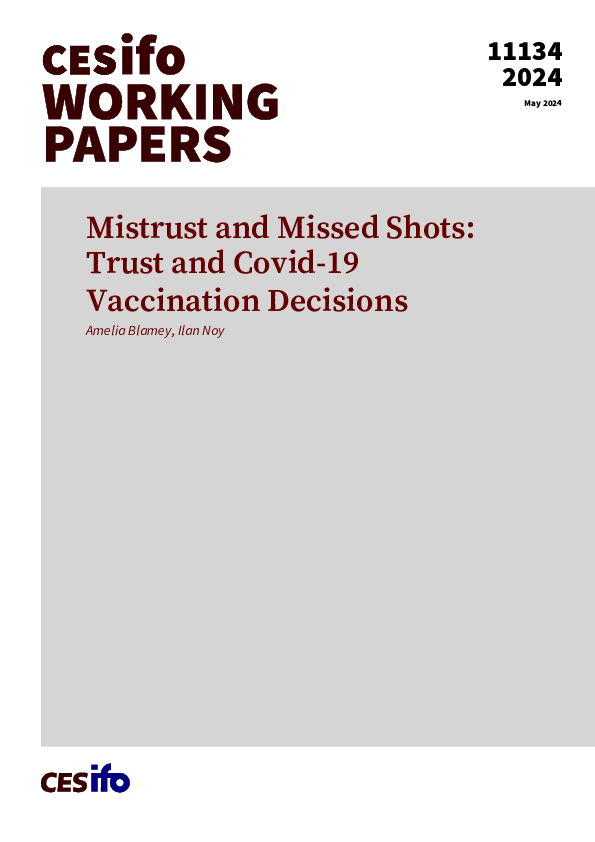Mistrust and Missed Shots: Trust and Covid-19 Vaccination Decisions
CESifo, Munich, 2024
CESifo Working Paper No. 11134

We investigate the effect of interpersonal and institutional trust on COVID-19 vaccination hesitancy. We ask whether interpersonal and institutional trust predict COVID-19 vaccination delay and refusal. We use an unprecedently rich and representative dataset of over 22,000 New Zealand respondents, sourced from the 2014, 2016, and 2018 General Social Survey. Respondents reported their trust in seven domains: Parliament, police, health, education, courts, media, and the general public. Their survey responses are linked to respondents’ later records of COVID-19 vaccinations and their socio-demographic characteristics, as collected in the 2018 census. We find that all measured trust domains exhibit a significant and negative correlation with vaccine hesitancy. As trust increases, vaccination hesitancy decreases and so does the time it takes people to vaccinate. The correlation is strongest for trust in police and interpersonal trust, and weakest for trust in media. By understanding how trust informs vaccination decision-making, we can better prepare for future pandemics and improve public health vaccination campaigns more generally.
Behavioural Economics